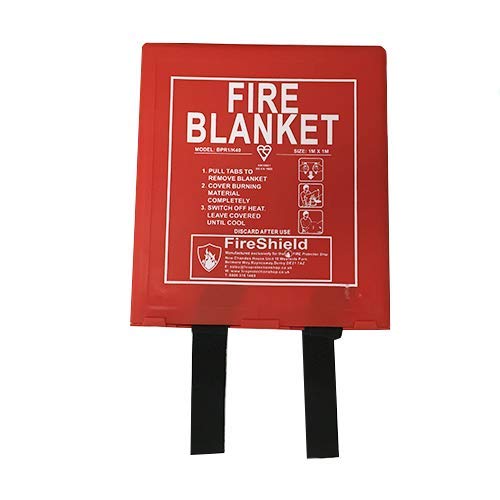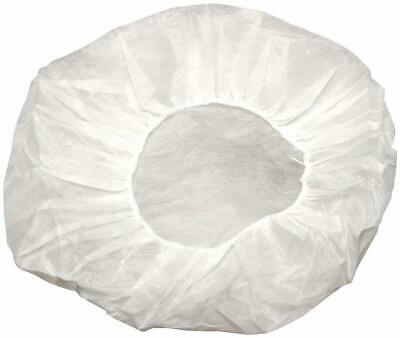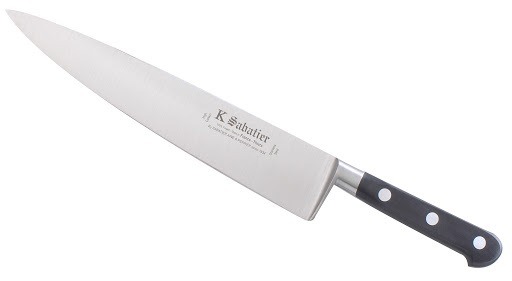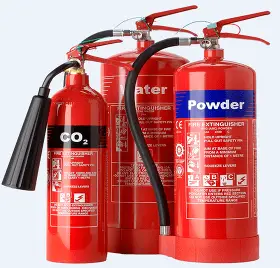It is fun to cook, even therapeutic for some, but occurrence of kitchen accidents can take away the fun and induce a fear of working in the kitchen.
Safety in the kitchen is a matter of great importance. There’s a lot of environmental dangers and dangerous equipment in the kitchen, which can be very hazardous if not well handled.
Knowledge of the Common Kitchen Hazards will help you to avoid them by developing and following appropriate kitchen safety rules.
Things such as bacteria, open fire by your oven, knives and even electric appliances around your kitchen are dangerous.
Developing and observing some safety rules in your kitchen should be standard best practice.
You should always focus on what you are doing in your kitchen as one slip may lead to serious mishaps or injury.
To avoid serious accidents or injuries, you should have the required kitchen safety equipment on hand.
You should also adopt a kitchen cleanliness plan, and focus on what you are doing as opposed to being spaced out and dividing your attention amongst many tasks.
Focus and awareness while in your kitchen includes knowing who or what is in the room.
For instance, knowing whether your children or pets have entered the kitchen space and applying necessary safety measures which could include taking them out or applying extra precautions.
Basic Safety Rules
Below are some basic kitchen safety rules to always keep in mind:
-
Fire extinguishers and fire blankets:

Your kitchen should have a fire extinguisher. This device will help prevent a catastrophe. Make sure you do all you can to avert a kitchen fire; however, at times it is not within one’s control.
So, ensure that you are familiar with how it operates before a fire outbreak. You cannot waste any time going through the instructions in the middle of a flame.
In addition to having a fire extinguisher, you could also have a fire blanket since some fires can be simply put off by smothering them with a fire blanket.
-
Food hygiene:
Kitchen safety is usually talked about with regard to burns and cuts; however, food borne sickness is certainly an essential concern that’s worth dealing with.
The best way of ensuring that everyone stays safe is insisting that they wash hands, preferably with an anti-bacterial hand wash before cooking and throughout food preparation.
-
Storage tips:
You should store heavy things and bulky appliances in the kitchen’s bottom cabinets. Utilize the upper cabinets for lighter kitchen items.
Trying to reach the upper cabinets to get lightweight items is safer and easier than trying to take out heavy items.
There is a risk of serious injuries should heavy items fall on your while trying to retrieve them from the upper cabinets.
-
Hair and head gears:

You should cover your head with a clean covering like a hairnet, bandana, ball cap or chef’s hat when dealing with food, especially if your hair is loose.
If your hair is long, tie it back, and then use a clean head covering to cover your head. Finding bits and pieces of hair is an indication of poor hygiene in the kitchen.
Even one misplaced hair strand on your food sends all the wrong signals to your body, including messing with your appetite.
Even though swallowing one strand of hair cannot make you sick or kill you, presence of hair in food should still be avoided as it is unpleasant.
Also, hair is not always clean and could be harboring bacteria, hence touching hair while cooking could expose food to contaminants in hair.
-
Kitchen dress code:
Yes, there is a recommended kitchen dress code, believe it or not. You should dress for safety while working in your kitchen. Cute and flashy may be great, but not at the expense of safety.
Make sure you dress in shoes covering the feet and shoes with a good grip. Don’t wear loose-fitting clothes. Remove jewelry, which includes rings, necklaces, earrings and bracelets.
Before you start your food preparation and cooking, ensure that everyone in your kitchen ties gets rid of loose clothing.
You want to prevent anything going up in flames, of course; however, you also want to prevent mishaps like a long necklace, a loose bracelet, or a sweatshirt sleeve on anything that might tug on a sharp knife or tip a hot plate, getting caught and resulting to an injury.
-
Rare or well done?
One of the most essential rules is to make sure food is well cooked. If not properly done, harmful bacteria can cause food poisoning.
You should cut into your food and see if it’s cooked through and ensure that any food you reheat is very hot. While lovers of rare meat might not agree, well cooked has its advantages.
-
Tidy up:
You should tidy your space. A clean and tidy environment will create safer conditions for cooking, and this will apply to both the kitchen as well as yourself.
-
Clean and dry countertops:
One of the most essential and easiest kitchen rules is wiping countertops after each use. You will not only be ensuring things stay tidy and clean, but you will also prevent bacteria from spreading as well.
Applying this rule will also prevent liquid spills on countertops from spilling onto the floor and causing serious falls.
-
Flames:
Do not pour water on a cooking flame. Depending on the fuel that caused the flame, water may increase the fire.
You should not try moving a burning item to another area. Instead, try and apply the right fire extinguishing methods like using your fire extinguisher or a fire blanket.
If the fire gets out of control, should for help from neighbors while simultaneously calling the fire department.
The advantage of calling out for help is that someone who is calm and not in a panicked state can make better and quicker decisions than you at the time; this includes being faster at making that call to the fire department.
-
Safe use of knives:

- Never place knives or other sharp items into the full sink of dirty dishes where you or a family member might reach in and hurt themselves.
- You should avoid movements while you hold knives. If you have to move from one spot to another, hold the blade facing downward, inform those around you’re coming through with it and walk with caution. Do not run.
- When cutting food with a knife, always cut toward a cutting board and away from your body. Avoid using your fingers as a cutting surface as the knife might go past the foods you are chopping and cut you.
- If your cutting board is moving when using, put a wet towel between it and the table or counter to secure it firmly.
- Make sure you put the knives down away from the table’s edge and positioned so the blade faces on its inside or down.
- Make use of appliances like knife blocks/holders for safe storage of your knives. You may also keep them in drawers with the sharp side facing forward and ensure the handle is easy to reach. The drawers should not be within children’s reach.
- Use your knife for cutting, not pointing or signaling.
- You should ask for help if you’re uncomfortable with a knife. Make sure you warn any family members who are breaking these useful knife handling rules.
-
Avoiding Burns:
Be cautious not to burn yourself:
- Make sure you use dry pan holders.
- Remember to turn off ovens, burners and other appliances once you’re done using them.
- You should walk slowly when carrying something hot.
- Keep your hands out of hot cookware or use kitchen oven gloves/mitts to hold.
- You should open pot lids away from you to securely hot steam.
- Allow family members to know you’re holding something hot.
-
Refrigerator hygiene:
You should keep the refrigerator clean for obvious reasons. The refrigerator is your main food storage space and should be kept clean since its contents will end up in your mouth and stomach, either in their raw or cooked form.
Left unattended, rotting food and spills will spread germs to everything else; do regular spot cleaning of your fridge using a kitchen paper or clean cloth soaked in vinegar daily between thorough sessions of cleaning the refrigerator.
-
Electrical safety measures:
Water and electricity don’t mix. Make sure you keep electrical cords and appliances away from water. You should always use dry hands for plugging an appliance in or out.
Also, avoid overloading your circuits as this is a common cause of kitchen hazards.
Also, do not insert metal objects into your electricity sockets or electric cables. That is a recipe for disaster that could end up with you or your loved ones suffering fatal electric shocks.
Other important kitchen safety rules:
- Do not put your ready to eat meals on the same cutting board, tray or plate you had placed raw food. This will help in preventing cross-contamination and harmful bacteria spreading.
- In addition, make sure you keep potholders, kitchen towels, paper towels, and other flammable things away from stove top burners so they will not catch fire
- Frequently change the bin to ensure kitchen hygiene. Rotten food in your bin will harbor bacteria and emit foul smells, so make sure you take the garbage out daily to prevent the spread of disease and any funny odors.
- Do not add water to a pan which has hot oil or fat in it as hot oil can splatter out of your pan and causing serious burns.
Conclusion
Whether it is keeping the worktops clean, changing the bin or following rules of food hygiene, these basic kitchen safety rules can help in protecting yourself and your loved ones against accidents in the kitchen.

